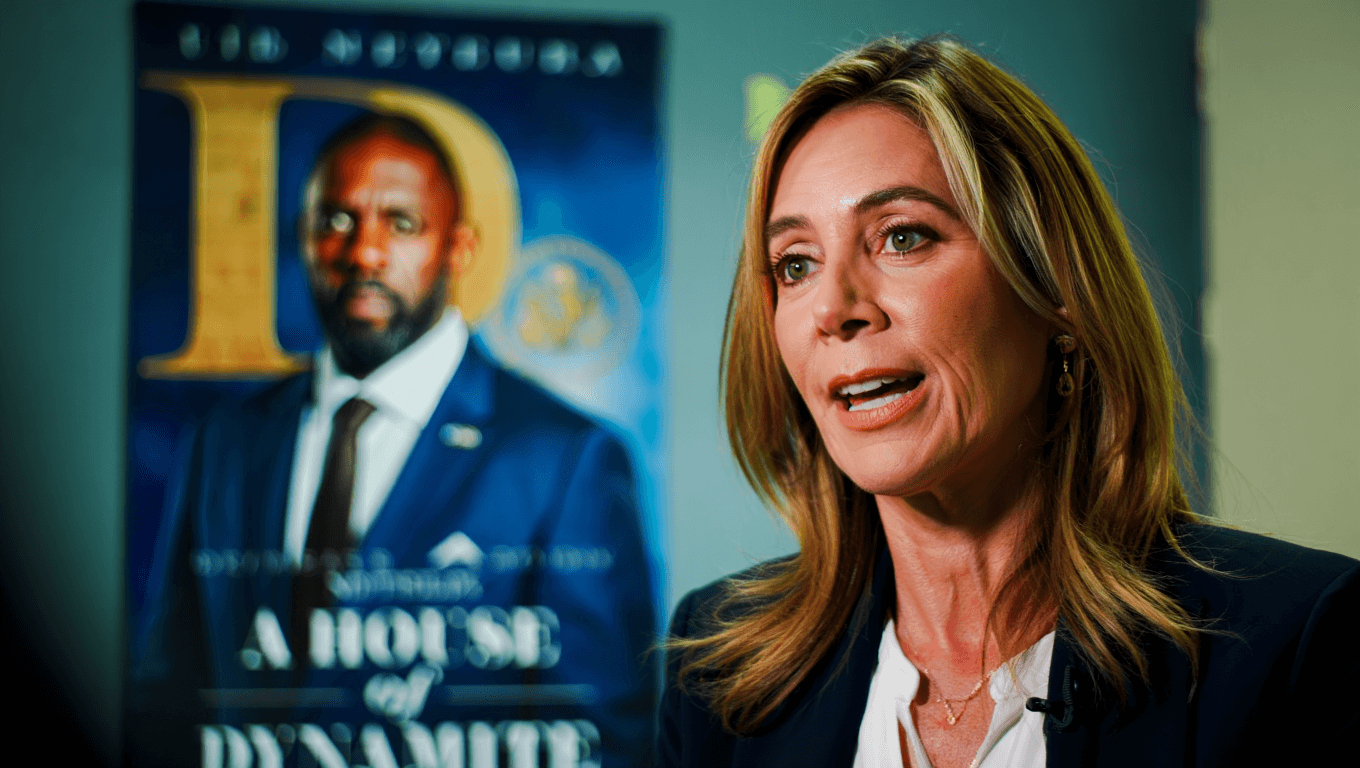Kathryn Bigelow isn’t backing down from the military establishment. The Oscar-winning director fired back at the Pentagon over criticism of her nuclear thriller A House of Dynamite. She told The Hollywood Reporter that she simply “just state(s) the truth.” The film, which launched on Netflix on Oct. 24, 2025, has sparked fierce debate about nuclear weapons and U.S. defense capabilities.
Apple One Bundle Beats Paying Separately – Do the Math
The Streaming Platform Diplomats Use Has the Best Foreign Films
🔥 Quick Facts:
- A House of Dynamite reached #1 on Netflix with 22.1 million views in first three days.
- The Pentagon issued a leaked internal memo criticizing the film’s depiction of missile defense.
- The film depicts U.S. missile defenses stopping attacks at roughly 50 percent accuracy.
- Bigelow consulted with tech advisers but intentionally avoided Pentagon input for independence.
- The upcoming START Treaty negotiations begin in February 2026, possibly influenced by the film.
What Happened: Director Stands Firm on Research
Bigelow and screenwriter Noah Oppenheim conducted extensive research for the film. They spoke with nuclear experts, former military officials, and government insiders who recently left their posts. The Missile Defense Agency disputed the film’s accuracy claim in an internal memo dated Oct. 16. The agency stated its systems have displayed 100 percent accuracy in testing for over a decade.
“I just state the truth. In this piece, it’s all about realism and authenticity. You’re inviting an audience into, say, the battledeck of STRATCOM. That’s a place that’s not easily accessible, and so you want it to be authentic and honest.”
Multiple weaponry experts have sided with Bigelow and Oppenheim publicly. Senator Edward Markey, retired General Douglas Lute, and journalist Tom Nichols from The Atlantic all praised the film for accuracy. The American Physical Society, a nonpartisan scientific organization, supports the film’s depiction. Oppenheim noted that former government officials are “often more free to speak their minds.”
Why This Matters: Culture Driving Nuclear Policy
For decades, nuclear weapons remained shrouded in silence, Bigelow argues. The film tackles a conversation that demands immediate attention. 12,000 nuclear weapons surround Americans daily, creating what she calls a “combustible environment.” The title itself reflects this reality.
Netflix’s global reach has amplified the impact exponentially. The platform offers unprecedented access to audiences worldwide, sparking discussions across continents. People are walking out of theaters with dual reactions: thrilled by the entertainment and convinced about urgent policy action. With the START Treaty negotiations looming in February, industry sources tell Bigelow the film may influence those critical talks.
Bigelow draws parallels to previous controversies surrounding Zero Dark Thirty (2012). Her approach remains unchanged: lean into realism. Whether depicting Iraq War combat or fictional nuclear crises, authenticity guides her vision. She welcomes the Pentagon’s engagement, viewing debate as validation. “In a perfect world, culture has the potential to drive policy,” she told The Hollywood Reporter.
The Details: Research vs. Official Claims
The core dispute centers on missile defense system effectiveness rates. Here’s what the competing claims reveal:
| Claim Source | Accuracy Rate | Basis |
| A House of Dynamite | ~50 percent | Expert interviews, research analysis |
| Missile Defense Agency | 100 percent | Testing results (over 10 years) |
| Independent experts | 50-60 percent | Published research, analysis |
Oppenheim emphasized that the disagreement isn’t between the filmmakers and Pentagon. Rather, experts across academia, national security, and journalism validate the film’s approach. The Bloomberg report noted Pentagon concern about the film’s depiction influencing public perception negatively. But Bigelow intentionally sidestepped military consultation to maintain creative independence.
What To Watch For: Impact on Policy Debates
The reverberations continue expanding:
- The START Treaty negotiations beginning February 2026 may reference the film.
- Congress members and policy experts will likely cite the film in upcoming defense budget discussions.
- Netflix streaming data will show if international audiences shift perspectives on nuclear Policy.
- Potential Pentagon response could include formal statements or policy clarifications.
- Awards season buzz may intensify scrutiny on Bigelow’s accuracy claims and methodology.
Can a Thriller Change How We Think About Nuclear War?
A House of Dynamite represents something rare: a blockbuster entertainment that doubles as urgent policy commentary. The film forced a conversation dormant for decades. Despite Pentagon pushback, multiple high-profile figures and expert organizations have publicly supported Bigelow’s vision.
The director remains unshaken. She’s built a career making unflinching films about war, from The Hurt Locker (2008) to Zero Dark Thirty (2012). Both sparked controversy and debate. Both ultimately influenced cultural conversations about American military power. This time, she’s tackling humanity’s most existential threat.
What makes this moment unique? Netflix’s massive reach means millions are thinking about nuclear weapons for the first time in years. The Pentagon’s leak backfired, amplifying rather than dampening the film’s message. Will Bigelow’s latest masterpiece actually change policy? That’s the ultimate question audiences should contemplate.
Sources
- The Hollywood Reporter – Exclusive interview with Kathryn Bigelow and Noah Oppenheim
- Bloomberg – Pentagon internal memo reporting on missile defense accuracy
- Netflix Tudum – Official film details and viewership statistics
Similar posts:
- Pentagon sparks controversy over A House of Dynamite on Netflix for inaccurate missile defense depiction
- A House of Dynamite sparks Pentagon backlash over missile defense ‘inaccuracies’
- A House of Dynamite cast: Idris Elba, Rebecca Ferguson star in Bigelow’s nuclear thriller
- Kathryn Bigelow’s Venice Question Sparks 2025 Debate Over Nuclear Risk
- A House of Dynamite sparks mixed reactions as Bigelow’s Netflix thriller divides viewers

Daniel Harris is a specialist journalist focused on the crossroads of breaking news, extraordinary history, and enduring legends. With a background in historical research and storytelling, he blends timely reporting with timeless narratives, making complex events and ancient myths resonate with today’s readers. Daniel’s work often uncovers surprising links between present-day headlines and legendary tales, offering unique perspectives that captivate diverse audiences. Beyond reporting, he is passionate about preserving oral traditions and exploring how extraordinary stories continue to shape culture and identity.

